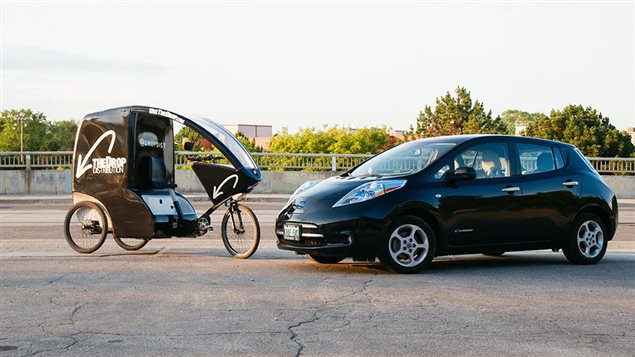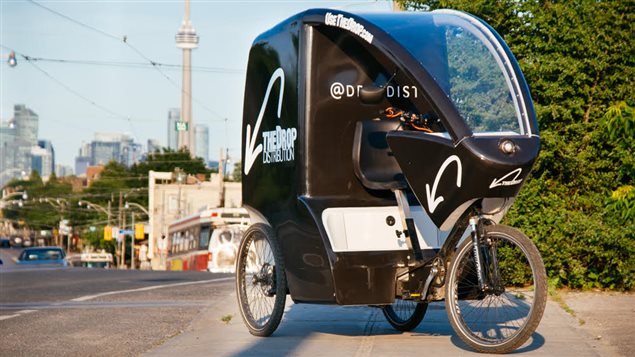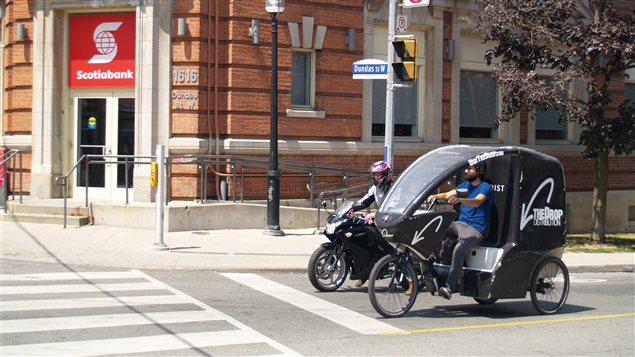
Traffic congestion is a big problem in Canada’s largest city and could be relieved by moving cargo by bicycle, concludes a report by the energy think tank, Pembina Institute.
It could also reduce greenhouse gas emissions and other pollution, and save businesses time and money, says the report’s author, Nithya Vijayakumar, an adviser at the institute.
ListenSafety concerns too
“In the downtown core, traffic really isn’t working for anyone,” she says. “We have congestion, goods-movement vehicles are experiencing parking fines, difficulty finding parking at all, clogging up the streets. It’s a safety concern for pedestrians and cyclists.”
Some businesses already move goods by bicycle in Toronto. They include restaurants sending meals to customers, food companies sending small items to grocery stores, and couriers have for some time delivered documents downtown.

UPS will try cargo bikes
UPS will soon launch a pilot project to move packages from its warehouse outside to the downtown core to recipients close to or in the centre. This is called last-mile delivery. Vijayakumar says more companies should consider using cargo bicycles.
“The main barriers lie in it being considered a niche movement,” she says, adding that companies need to be informed that “it’s not crazy to be able to take bikes during the winter or biking a long distance to move goods. They actually do have the capacity.”
Some cargo bikes already on Toronto roads
Larger bicycles designed to carry cargo are already on the road, some of them are electric.
Vijayakumar says that for now, larger cargo bikes do not have a designation in the province’s highway code. Giving them one could allow them to move on roads that are denied ordinary bicycles.
Increased use of bikes for deliveries would have big benefits in her view. It would increase the visibility of cycling and support advocacy for better infrastructure and it would reduce GHG emissions other pollution.

Cargo bike facts
In its news release, the Pembina Institute notes:
There are eight cargo bike manufacturers in Canada.
Vans light-duty trucks and SU”Vs represent 16.4 per cent of GHG emissions in Toronto.
A “cyclelogistics initiative” in Manchester, U.K. found that vans can make six to eight deliveries per hour, while electric cargo bikes can make 10 to 12.







For reasons beyond our control, and for an undetermined period of time, our comment section is now closed. However, our social networks remain open to your contributions.